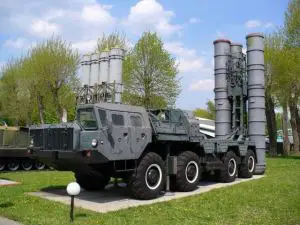 Gwynn ap Nudd, on 30 March 2025 - 06:31 PM, said:
Gwynn ap Nudd, on 30 March 2025 - 06:31 PM, said:
So, maybe I am missing something, but can someone enlighten me on the proposed US brokered peace deal/mineral rights deal?
The US under Trump is not going to give security guarantees to Ukraine. Not that US security guarantees mean very much anyway - just ask the Marsh Arabs, Syrian Kurds or, well, Ukraine. Unless they involve building and staffing large military bases similar to South Korea. Which is not happening anywhere under either party with the current US political climate.
Any military re-supply from the US is going to be charged at the same rates other countries pay, with high interest rates and loans based in US dollars if Ukraine doesn't have the ready cash. Investment from the US would come from the private sector, or again as a loan with high interest. So, what is the US actually bringing to the table that they should be getting anything in return? Based on what they are providing, I don't even see a reason for the US to be a party to the agreement.
Edit:
The better bet to me looks to be to ditch the US in the agreement altogether and aim at a deal brokered through the EU, as the EU is not demanding repayment of loans or mineral rights and represents most of the countries willing to send troops to Ukraine if there is a deal.
The US is currently still sending out the aid that's been promised by Biden.
The EU continues to operate under the assumption they need to keep the US onboard in European security as long as possible, despite Musk and co sending non-stop signals they DGAF about NATO and US's security "obligations"
Because of this, and because UA cannot continue waging this war effectively without European support, Kyiv can't burn all bridges with US just yet. Because that would make EU angry and panicky, and we can't have that until Europeans are ready to put on their big boy pants and stop hiding in America's skirt.
Once the White House says "we've sent all the aid that was authorized in 2024, and we aren't giving any more", they lose roughly two-thirds of the leverage they have on Kyiv. The remainder being intel sharing (which UAF is trying to replace right now, launching satellites with the Czechs and making intel-sharing arrangements with UK and France), and the existing US sanctions on Moscow (which aren't as important as EU's in raw numbers, but have potential to hurt more, if the US imposes secondary sanctions on those states and companies that violate their 1st order sanctions). But until that point, UA has to play nice.
And, again, if structured fairly, the investment agreement isn't inherently a bad thing. A lot of people back home hope that this will have to cause internal reforms and legislative changes that make for better, more open and less corrupt business practices, which are necessary for Western investment, but the added transparency enforced by the US will also make it better for local businesses. So the idea itself isn't terrible; though its current incarnation obviously is, which is why we haven't heard anythign from Kyiv for a while about what they think about it.

 Help
Help





















